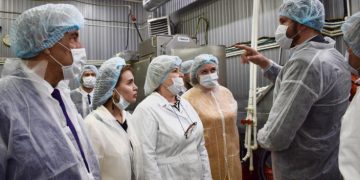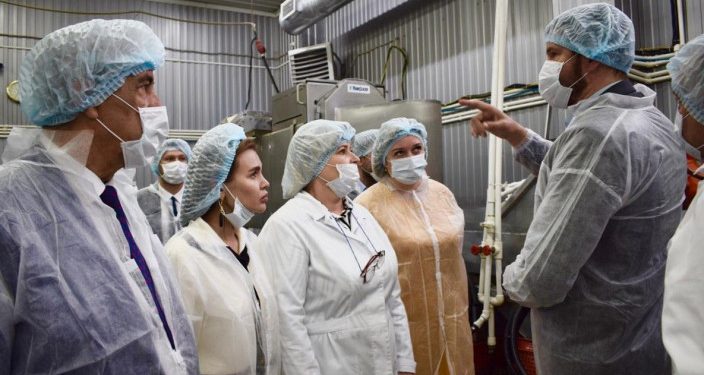During a working trip to the Bagaevsky District, the Minister of Economic Development of the Rostov Region, Maxim Papushenko, visited the agro-industrial enterprise Agram-South, the largest Russian supplier of pickled and pickled cucumbers.
More than thirty years ago, the Agram company began its activity with cooperation with the largest chains of restaurants and fast food cafes in Russia. Now Agram is a full-cycle enterprise with its own pickling, processing and storage workshops, and a patented marinade technology. About 160 hectares of occupied sown areas are allocated for growing the standard Russian cucumber.
“The sustainable quality of our products is annually confirmed by passing international certification systems in the field of agriculture,” said Anatoly Revyakin, head of the company, at the meeting.
Before processing and selling products, cucumbers are selected according to more than 20 quality criteria. The combination of intelligent innovation and state-of-the-art technical equipment has enabled the company’s management to formulate and confidently pursue a growth policy. In 2021, the enterprise sold over 4,000 tons of finished products.
“The participation of Agram-South in the regional project “Targeted Support for Increasing Labor Productivity at Enterprises” managed by the Regional Competence Center will help not only support the company, but also bring it to a new stage of development,” Maxim Papushenko noted. – Thanks to this support, three enterprises of the region have already reached the threshold criterion “revenue from 400 million rubles” and were able to become full-fledged participants in the national project “Labor Productivity”.
Also during the meeting, topical issues in the field of import substitution were discussed. The Center for Import Substitution and Cooperation, created by the Ministry of Economic Development of the Region on the basis of ANO “Innovation Agency of the Rostov Region” and the center “My Business”, promotes the establishment of cooperative ties between enterprises, universities, research organizations in order to produce import-substituting products.































